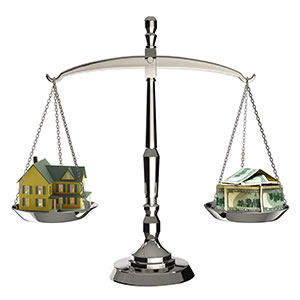 According to New York State Law, property taxes are supposed to be based on market value, the more your home is worth, the more taxes you pay. It is the assessors job to ensure that your assessment reflects an accurate and fair value.
According to New York State Law, property taxes are supposed to be based on market value, the more your home is worth, the more taxes you pay. It is the assessors job to ensure that your assessment reflects an accurate and fair value.
Assessments are required to be proportional to value, however values change over time and because of this, assessments may become excessive due to disproportionate appreciation (or depreciation) across the assessing district.
If your assessment is too high, you are paying more taxes than you should.
You have the right to challenge your unfair assessment through the tax grievance process. Since this process is complicated and time-consuming, many property owners choose to have an experienced agent represent them – just as they might choose to have an accountant prepare their income tax returns.
At TRS, we handle every step of this process for you. We do a free analysis of your property and once you sign up, our tax reduction professionals file all paperwork, prepare an appraisal, file an appeal if necessary and attend all hearings. And most importantly – you pay nothing if your taxes aren’t reduced. The proper preparation and presentation of your case is critical to its success, as the assessment of a property is always presumed to be correct. The burden of proof is on the petitioner.
When you set out to lower your taxes, what you’re actually trying to lower is your assessment. You’re not claiming that your taxes are too high. What you’re claiming is that the assessor’s implied valuation of your property (as expressed by your assessment) is excessive and, as a result, you’re bearing more than your fair share of the total tax burden. The process is dependent upon establishing a market value for your home and begins by filing a grievance.
